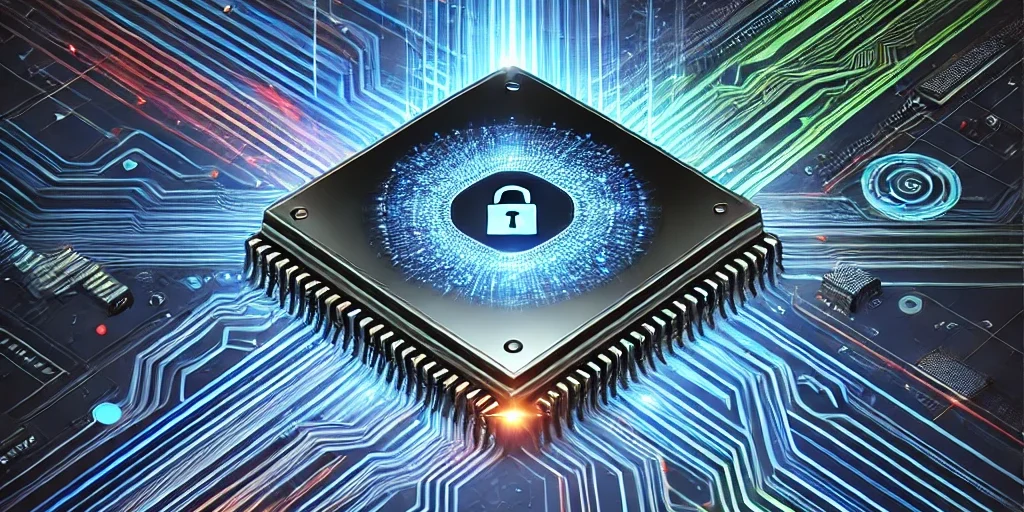FPGAs (Field Programmable Gate Arrays) are revolutionizing the world of digital systems, especially when it comes to security and trust. In this article, we explore how this technology can be used to implement cryptographic systems, hardware security, and even truly secure random number generators. Discover why FPGAs are a smart choice for high-performance, cost-effective applications!
What Are FPGAs?
FPGAs are reprogrammable semiconductor devices that allow the implementation of custom digital circuits. They feature an architecture composed of:
- Logical Blocks (L Blocks): Units that perform Boolean operations and implement various logic functions.
- Routing Blocks (C and S Blocks): Responsible for connecting the logical blocks through configurable routing channels.
- I/O Buffers: Manage the input and output data of the device.
These characteristics give FPGAs the flexibility to be reprogrammed for different functions, making them ideal for both prototyping and final system production.
Advantages of FPGAs Over ASICs and Software Implementations
1. Faster Development Time and Lower Cost
One of the major advantages of FPGAs is their short development time. Unlike ASICs (Application-Specific Integrated Circuits), where each project requires a specific and expensive manufacturing process, FPGAs can be reprogrammed multiple times. This means:
- Lower unit cost: There is no need to rely on silicon foundries for every new design.
- Speed to market: The ability to modify the system according to new specifications accelerates product launch.
2. Flexibility and Reconfigurability
The reconfigurability of FPGAs allows a single device to support multiple security protocols or even different cryptographic algorithms. This versatility is crucial in an environment where:
- Algorithms can be replaced: If one is compromised, it can simply be removed and substituted with another.
- New security standards: Can be quickly integrated, ensuring that the system remains up-to-date.
3. Performance and Energy Efficiency
Compared to software implementations, FPGA-based systems offer:
- Superior speed: Low-level operations, such as bit manipulation performed by logical blocks, are executed much faster.
- Low power consumption: Customizing the architecture for each function ensures that the device operates more efficiently, which is ideal for high-performance applications with minimal energy use.
- High throughput: Cryptographic applications can achieve performance levels comparable to high-performance CPUs without the additional cost of general-purpose hardware.
Applications in Hardware Security
Implementing Cryptosystems
FPGAs are widely used for implementing cryptographic systems due to their flexibility and high performance. Some of the benefits include:
- Adaptability to different protocols: They support multiple algorithms, allowing systems to quickly adapt to new security demands.
- Parallel processing: Enables simultaneous execution of cryptographic operations, boosting processing speed.
Hardware Security Primitives
FPGAs are also an ideal choice for implementing hardware security primitives, such as:
- Physical Unclonable Functions (PUFs): These utilize the inherent physical variations in the device to generate unique, hard-to-replicate identifiers.
- True Random Number Generators (TRNGs): By leveraging physical uncertainties—such as clock network jitter and propagation delays—FPGAs can generate highly entropic random numbers. This is essential for ensuring the robustness of cryptographic protocols, as the quality of randomness directly impacts system security.
Moreover, FPGAs allow testing and fine-tuning of the generated bitstreams (used to configure the device), ensuring that the random numbers remain unpredictable and resistant to external attacks.
Final Thoughts and Future Perspectives
The versatility and efficiency of FPGAs make them a preferred platform for implementing security systems. By combining the best of hardware with the flexibility of software, these devices not only shorten development times but also deliver robust, high-performance solutions to meet modern digital security challenges.
As the challenges in security and hardware design continue to evolve, the adaptability of FPGAs will be key in creating solutions that address both performance demands and the need to protect critical data and systems.
Investing in FPGAs means embracing a technology that offers agility, efficiency, and a secure path to innovation in the digital security landscape. Stay tuned for more updates and insights on how FPGAs are transforming cryptographic systems and hardware security!
Related Articles
To further explore topics related to FPGAs, hardware security, and cryptographic systems, check out the following articles:
- “Unveiling Side Channel Attacks: Timing and Scan Chain Techniques”: Discover how FPGAs can mitigate side-channel attacks with custom countermeasures.
- “Power Analysis Attacks: Unveiling SPA and DPA in Cryptographic Security”: Learn how FPGAs enhance resistance to power analysis attacks in cryptographic systems.
- “Hardware Trojans and Trusted Integrated Circuits: Unraveling Hardware Security”: Explore how FPGAs contribute to building trusted and secure circuits.
- “Protecting Your Circuits: Practical Techniques Against Hardware Trojans”: Understand how FPGAs can implement advanced protection techniques against hardware Trojans.
- “Montgomery Reduction: Optimizing Modular Multiplication”: See how FPGAs accelerate modular arithmetic for cryptographic applications.
These articles provide a comprehensive view of how FPGAs are transforming hardware security and cryptographic systems, offering insights into their versatility and efficiency.





